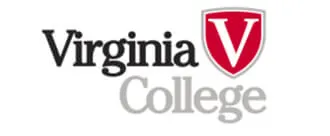Are you considering beginning your nursing career as a Licensed Practical Nurse (LPN)? If so, Virginia College's Associate of Science in Health Sciences with a concentration in Practical Nursing program could provide the education you will need to prepare for licensure. Continue reading for more information about this associate's degree program.
<h2 id="section---FrequentlyAskedQuestions">Frequently Asked Questions</h2>
<h3 id="section---WhatKindOfProgramIsIt"> What Kind of Program Is It?</h3>
<p>Virginia College's Associate of Science in Health Sciences with a concentration in Practical Nursing program combines a general education with courses in various areas of nursing. You will have the opportunity to study pediatric nursing, surgical nursing, geriatric nursing, and nutrition. Courses are also provided in medical terminology, pharmacology, anatomy and physiology, nursing fundamentals, and human development. The Associate of Science in Health Sciences with a concentration in Practical Nursing program is designed to prepare you to take the national LPN licensing exam. The program is entirely campus-based.
</p>
<h3 id="section---WhatAreThePrerequisites">What Are the Prerequisites?</h3>
<p>You should have an interest in helping people and working in a healthcare environment before enrolling in Virginia College's Associate of Science in Health Sciences with a concentration in Practical Nursing program. Previous courses in communications and science are helpful, but not required. Applicants to Virginia College programs should have a high school diploma or GED.
</p>
<h3 id="section---WhatAreTheCourseRequirements">What Are the Course Requirements?</h3>
<p>The completion of 105 quarter credit hours is required to earn the Associate of Science degree in Health Sciences with a concentration in Practical Nursing from Virginia College. This total consists of 81 credits in the practical nursing area of concentration and 24 credits in general education requirements. General education courses are taken in communications, mathematics, humanities, and social sciences.
</p>
<p><u>Concentration Courses</u>
</p>
<p />
<table border="1"><tr><td>PRN 1050</td><td> Introduction to Nursing</td></tr>
<tr><td>PRN 1100</td><td> Fundamentals of Nursing</td></tr>
<tr><td>PRN 1130</td><td> Human Anatomy and Physiology</td></tr>
<tr><td>PRN 1140</td><td> Medical Terminology for Nursing</td></tr>
<tr><td>PRN 1150</td><td> Pharmacology and Medication Administration</td></tr>
<tr><td>PRN 1180</td><td> Nutrition, Wellness, and Disease</td></tr>
<tr><td>PRN 1200</td><td> Geriatric Nursing</td></tr>
<tr><td>PRN 1300</td><td> Medical/Surgical Nursing I</td></tr>
<tr><td>PRN 1400</td><td> Medical/Surgical Nursing II</td></tr>
<tr><td>PRN 1450</td><td> Human Growth and Development</td></tr>
<tr><td>PRN 1600</td><td> Maternal, Newborn, and Pediatric Nursing</td></tr>
<tr><td>PRN 1800</td><td> Transition to Graduate</td></tr>
</table><h3 id="section---WhatCouldIDoAfterIGraduate"> What Could I Do After I Graduate?</h3>
<h4 id="section---CareerOpportunities">Career Opportunities</h4>
<p>After graduating from the Associate of Science in Health Sciences with a concentration in Practical Nursing program and obtaining necessary licensure, you could seek employment as a LPN. You might find employment in a variety of healthcare facilities, including:
</p>
<ul><li>Hospitals
</li><li>Clinics
</li><li>Nursing homes
</li><li>Home healthcare agencies
</li></ul><h4 id="section---AdvancedDegrees">Advanced Degrees</h4>
<p>To advance in the nursing field, you might need to become a registered nurse (RN). Many schools across the United States offer LPN to RN programs. You might consider a Bachelor of Science degree in Nursing after obtaining RN certification. You could also choose to pursue a Bachelor of Science in Nursing Administration.
</p>
<p><i>Advanced degrees may not be offered at Virginia College, and credits may not be transferable.</i></p>


.svg)


